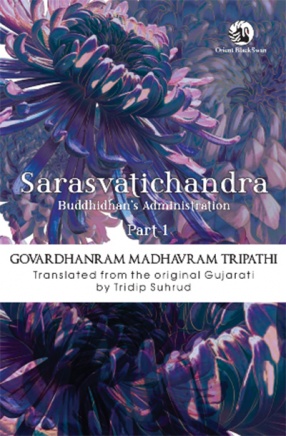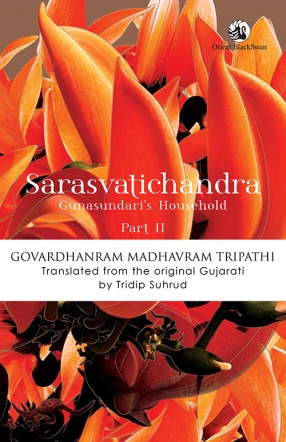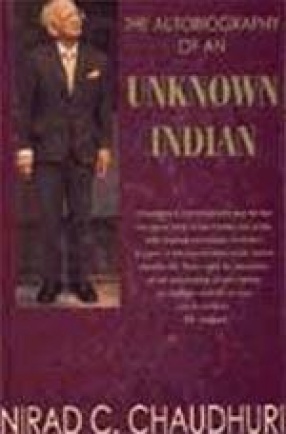Sarasvatichandra Part I: Buddhidhan's Administration
A novel of epic proportions, written in four parts from 1887 to 1901, Sarasvatichandra is both an enactment and the embodiment of the life philosophy of one man, and his sole mission.
Part I, Buddhidhan’s Administration, narrates the story of one individual’s extraordinary rise from poverty to power, to become the Karbhari of Suvarnapur. East India Company’s growing presence in the Indian native states provides the setting for the rivalry between Buddhidhan and the ruling Karbhari, Shathrai, and the royal intrigue involving Bhupsinh, claimant to the throne of Suvarnapur. The parallel story threading through all four parts is of an unusual and abiding love between Sarasvatichandra and Kumud who, betrothed young, fall in love before marriage-through an exchange of letters, words and worlds.
Written sixty years before Independence, the novel holds up a fascinating mirror to Gujarati society of that time, the joint family, particularly the role of women, and life in the princely states, against the backdrop of a nation in transition at the turn of the century-culturally, politically and ideologically.
Before the advent of Gandhi, arguably no other work has so profoundly influenced the ethos and imagination of Gujarat as Sarasvatichandra. Part II, III, and IV, also translated by Tridip Suhrud, an acknowledged scholar of nineteenth and twentieth century Gujarat are forthcoming.
Contents: Translator’s Introduction. Preface. An Offering. 1. The guest of Suvarnapur. 2. Buddhidhan’s family. 3. Buddhidhan. 4. Buddhidhan (Continued). 5. Buddhidhan (Conclusion). 6. Intrigues in Rajeshwar. 7. Pleasure garden. 8. At the counsellor’s house. 9. The consequences of intoxication. 10. Instruments of intrigue and the Warcraft of Karbharis. 11. In readiness for court. 12. King, palace and administration. 13. On the way. 14. Destiny fulfilled. 15. Sarasvatichandra.16. Buddhidhan and Saubhagya Devi. 17. Pramaddhan and Kumud Sundari. 18.The Karbhari and his Administration. 19. Night Life: The rising curtain and the ordeal by fire. 20. Leave taking. 21. Walking away.
Get it now and save 10%
BECOME A MEMBER








Bibliographic information
Tridip Suhrud